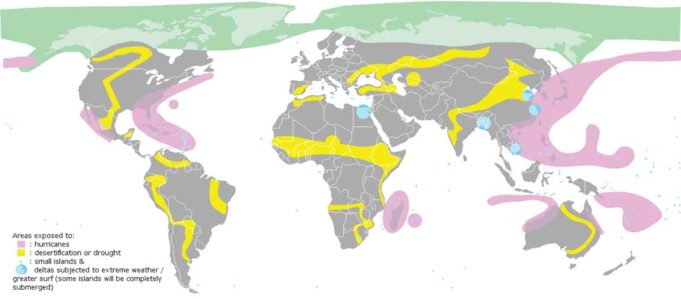The other day a sperm whale washed up dead on a public beach in southern Spain. When the local El Valle Wildlife Rescue Center examined the remains, they determined that the whale was killed by gastrointestinal shock after ingesting 64 pounds of plastic. The autopsy found plastic bags, nets, ropes, and sacks in the whale’s stomach and intestines.
Call me crazy, but the whole story made me want to rip out my teeth and starve.
My response obviously wasn’t healthy (for me, at least) or normal. But maybe it should be. Maybe the only way we’re going to pull back from the brink is if our collectively destructive behavior makes us sick and suicidal. The irony, of course, is that our collective behavior is sick and suicidal.
It’s true that world past leaders haven’t done enough to mitigate, limit, or slow down climate change. But the United States’ current White House occupant is repealing the very little that past leaders have accomplished. He’s throwing out regulations on air pollutants and the disposal of toxic waste, undermining clean energy programs, doubling down on noxious energy resources, removing mentions of climate change in studies of national security threats (even though climate change-worsened natural disasters and a dwindling supply of clean natural resources are creating conflict and refugee crises), weakening threatened species guidelines (even though the alarming decrease in species diversity increasingly threatens our own species), rolling back emissions standards (even though he has no standards regarding his own emissions), and that’s just the tip of the (melting) iceberg.
After 9/11, another Republican administration proffered the 1 percent doctrine to commence a “war” on “terror.” Vice President Dick Cheney asserted, “If there’s a 1 percent chance that Pakistani scientists are helping al-Qaeda build or develop a nuclear weapon, we have to treat it as a certainty in terms of our response. It’s not about our analysis. … It’s about our response.”
Later, National Security Advisor Condoleeza Rice succinctly concurred, applying the paradigm to a country that had nothing to do with the 9/11 attacks: “The problem here is that there will always be some uncertainty about how quickly [Saddam Hussein] can acquire nuclear weapons. But we don’t want the smoking gun to be a mushroom cloud.”
So we demolished Iraq and started a war (on terror) that we will never stop paying for. Or end.
Today, however, Republicans and this Republican administration refuse –– despite staggering, terrifying analysis — to even formulate a response, much less apply the 1 percent standard to an undeniable potential “mushroom cloud.” And it’s not just a political or state threat — it’s a universal existential threat.
Unsurprisingly, a new 1 percent doctrine has emerged.
If the richest 1 percent –– who control 40 percent of the wealth in this country and 50 percent around the planet — don’t want regulations that affect their profit margins or personal short-term gains, the Republicans will attack any analysis that undermines the 1 percent’s directives and thwart efforts to ensure the safety and common good of the citizenry. It’s kakistocracy on parade — screw mushroom clouds!
It’s unpleasant to think on this, but it should be made plain. We can’t simultaneously root for America and planet Earth right now. We’re not even on the same team.
So it’s time to answer some tough questions.
Black Lives Matter, Blue Lives Matter –– does life in the oceans matter? Does the rest of life on the planet matter? Is it too late to include Mother Earth in the #MeToo conversation?
Why does our existence make it impossible for so many other species to thrive? And, worse, why are we OK with it? Does non-human life matter? Does non-human molestation, abuse, or assault matter?
Do any lives really matter if all life doesn’t matter?
Must the success of the human genome be inversely proportionate to the success of almost all other life forms on this wheezing blue orb?
Yes, I feel like ripping my teeth out.
And if this is the best we can do, so should you.
Award-winning author E.R. Bills was born in Fort Worth and raised in Aledo. His latest book is Texas Far & Wide (History Press, 2017).













Yes, I am also disgusted by us people. I went to Surfside recently and the amount of plastic on the beach was very sad. I meant to just walk and relax but after seeing it so much I had to stop and clean for 30 minutes. I did it about 4 times in several days because I was so sad by what people have done. The whale makes me sad. Action.